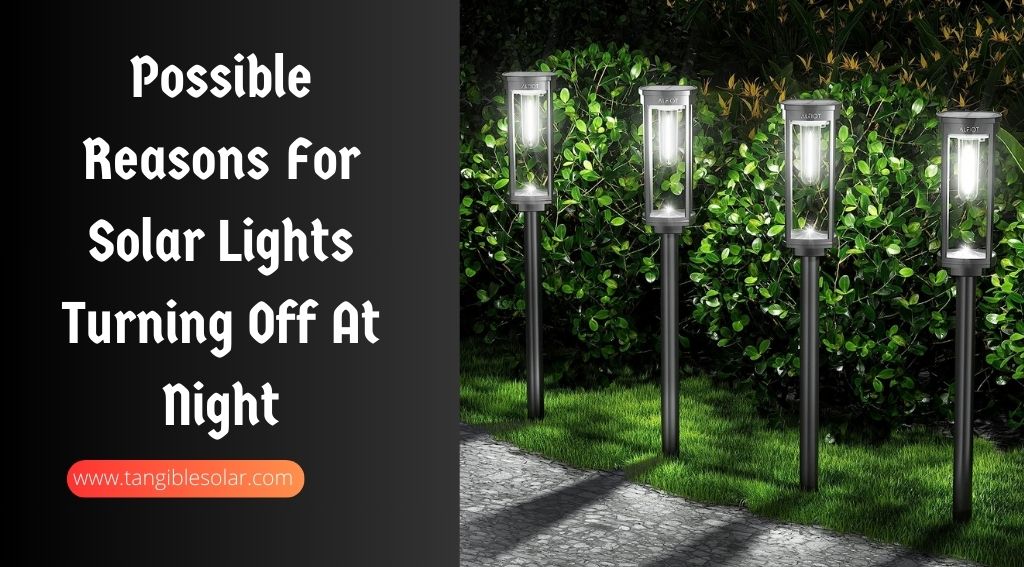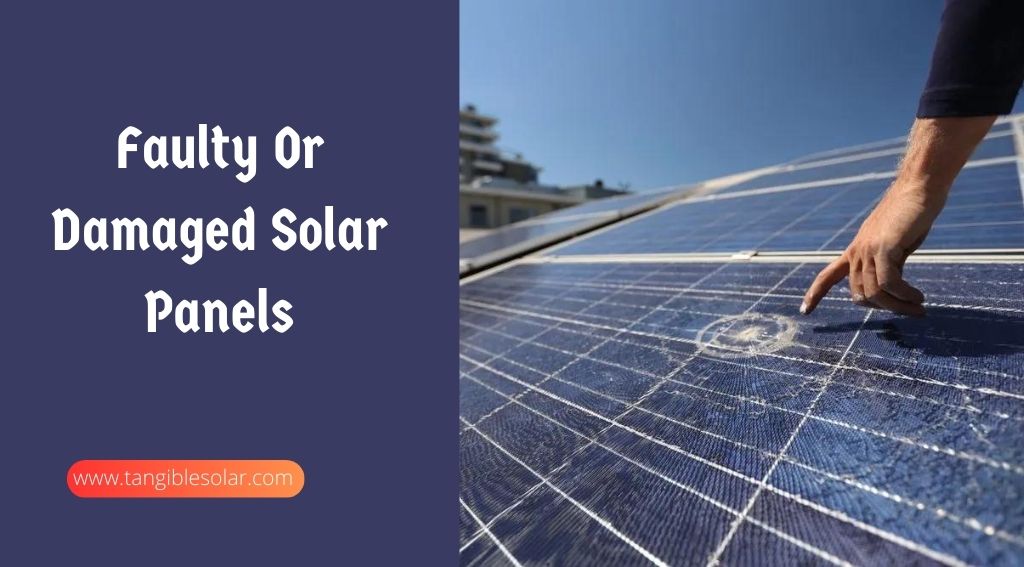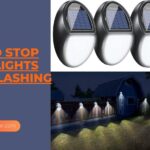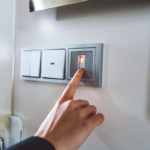Why do my solar lights turn off at night?
Solar lights turn off at night because they are designed to work in the presence of sunlight during the day, which charges their batteries through solar panels. As the sun sets and darkness falls, the solar panels are no longer able to generate power, causing the lights to turn off.
Understanding Solar Lights And Their Operation
Solar lights are a popular and eco-friendly option for outdoor lighting. They harness the power of the sun to provide bright illumination throughout the night. However, if you’ve noticed that your solar lights turn off at night, you may be wondering why. In this section, we will delve into the workings of solar lights and their operation to help you better understand this phenomenon.
How do solar lights work?
Solar lights operate on a simple and sustainable principle. Equipped with a photovoltaic (PV) panel that captures sunlight and converts it into electricity, Multiple solar cells that contain layers of semiconductive material. When sunlight hits the cells, it creates an electrical current. This allows the PV panel to harness the sun’s energy even on cloudy or overcast days.
How To Clean Outdoor Solar Lights
As the sun sets and natural light diminishes, solar lights use a sensor called a light-sensitive resistor (LDR) to detect the decreasing light levels. The LDR triggers the solar light to turn on, activating the stored electricity from the battery.
The Importance Of Solar Panels In Solar Lights
Solar panels are a crucial component of solar lights. They are responsible for capturing sunlight and converting it into usable electricity. Without a properly functioning solar panel, solar lights would not be able to operate efficiently.
It’s essential to ensure that the solar panel is positioned strategically to receive maximum sunlight exposure throughout the day. Placing solar lights in shaded or obstructed areas can significantly impact their performance. Aim to install solar lights in locations where they can receive direct sunlight for optimal charging.
The quality and efficiency of the solar panel also play a significant role in the operation of solar lights. High-quality panels can absorb and convert sunlight more effectively, leading to better performance and longer-lasting illumination during the night.
Possible Reasons For Solar Lights Turning Off At Night

Your solar lights are designed to provide you with sustainable and eco-friendly lighting throughout the night. However, there are a few possible reasons why your solar lights may turn off once the sun sets. Understanding these reasons will help you troubleshoot the issue and ensure that your solar lights stay illuminated when you need them the most.
Insufficient Sunlight Exposure During The Day
One of the main culprits behind solar lights turning off at night is insufficient sunlight exposure during the day. Solar lights convert sunlight into energy through their solar panels, which charge the built-in batteries. Without enough exposure to the sun’s rays, these batteries may not have enough energy to power the lights throughout the night. This is especially true in areas with limited sunlight or during cloudy weather conditions.
Solar panels are the backbone of solar lights, responsible for harnessing energy from the sun. If these panels become faulty or damaged, they may not be able to effectively convert sunlight into electricity and charge the batteries. Excessive dirt, debris, or physical damage can hinder the panel’s ability to absorb sunlight and compromise the overall performance of the solar lights.
Why Is There An On Off Switch On Solar Lights
Another reason for solar lights turning off at night could be battery drainage problems. Over time, batteries in solar lights can wear out and lose their capacity to hold a charge. This can lead to premature shut-off of the lights, especially if the batteries are not replaced or maintained regularly. It’s important to check the battery status and replace it if necessary to ensure optimal performance.
Insufficient Sunlight Exposure
Insufficient Sunlight Exposure
If you’ve ever noticed your solar lights turning off at night or not staying on for as long as you expected, one of the possible reasons is insufficient sunlight exposure. Solar lights rely on sunlight to charge their batteries during the day, so they can illuminate your outdoor space at night. However, several factors can affect how much sunlight the solar panels receive, ultimately resulting in insufficient energy storage and shorter lighting duration. In this article, we will explore the effects of cloudy or rainy weather, the importance of proper solar panel positioning, and solutions to maximize sunlight absorption.
Effects Of Cloudy Or Rainy Weather
Cloudy or rainy weather significantly reduces the amount of sunlight reaching the surface of the earth. Similarly, when dark clouds block the sun’s rays, the solar panels on your lights receive less energy to convert into electrical power. As a result, the lights may not charge fully or may not charge at all. This can lead to reduced illumination during the night or lights turning off earlier than expected.
Importance Of Proper Solar Panel Positioning
Proper solar panel positioning plays a crucial role in maximizing sunlight absorption. Placing your solar lights in areas with direct sunlight exposure for the majority of the day ensures that the solar panels receive sufficient energy to fully charge the batteries. This allows the lights to stay on for longer periods at night. If your lights are located in shaded areas or obstructed by objects such as trees or buildings, they may not receive optimal sunlight, leading to reduced performance.
Solutions To Maximize Sunlight Absorption
- Consider repositioning your solar lights to areas with more sunlight exposure, away from obstructions or shade.
- Regularly clean the solar panels to remove dirt, dust, or debris that may accumulate over time and hinder sunlight absorption.
- Ensure the solar panels are facing the correct direction. In the northern hemisphere, panels should face south to capture the most sunlight throughout the day.
- Trim any nearby trees or plants that may cast shadows on the solar panels and limit sunlight exposure.
- Invest in solar lights with adjustable solar panels so you can angle them appropriately towards the sun.
- Consider installing additional solar panels to enhance sunlight absorption, especially if you have multiple solar lights in different areas of your outdoor space.
By implementing these solutions, you can maximize sunlight absorption and ensure that your solar lights stay illuminated throughout the night, giving your outdoor area the desired ambiance and enhancing its safety.
Faulty Or Damaged Solar Panels

If your solar lights turn off at night, it could be due to faulty or damaged solar panels. These panels are responsible for capturing sunlight and converting it into energy that powers your lights. If there’s an issue with your solar panels, it can prevent them from generating enough power to keep your lights on throughout the night. In this section, we’ll explore the signs of damaged solar panels, maintenance and troubleshooting tips, as well as when it may be time to replace them.
Signs Of Damaged Solar Panels
Several signs can indicate your solar panels are damaged, causing your lights to turn off at night. Pay attention to these signals and take appropriate action to resolve the issue.
- Visible physical damage: Inspect your solar panels for any visible cracks, chips, or other physical damage. These can affect the functionality of the panels and reduce their efficiency.
- Decreased power output: If you notice a significant decrease in the brightness or duration of your solar lights, it may be a sign that the solar panels are not generating enough power due to damage.
- Discoloration or discoloration: Keep an eye out for any unusual discoloration or staining on your solar panels. This can indicate damage or degradation of the panel materials.
Maintenance And Troubleshooting Tips For Solar Panels
Regular maintenance and troubleshooting can help prolong the lifespan of your solar panels and ensure they continue to operate effectively.
- Clean the panels: Regularly clean the surface of your solar panels to remove any dirt, dust, or debris that can block sunlight and reduce their efficiency. Use a soft cloth or sponge and mild detergent to gently wipe away any grime.
- Check for shade: Make sure that no trees, structures, or other items that might block sunlight are shading your solar panels. If necessary, trim branches or move objects to allow maximum sunlight exposure.
- Inspect for loose connections: Check the connections between the solar panels, wiring, and the lights themselves. Loose or corroded connections can impede the flow of electricity and hamper the performance of your solar lights.
When To Replace Solar Panels
While regular maintenance can help prolong the life of your solar panels, there may come a time when replacement is necessary. Here are a few signs that indicate it’s time to replace your solar panels:
- Severe physical damage: If your solar panels have sustained severe physical damage that cannot be repaired, it’s best to replace them. Cracks, extensive corrosion, or irreparable discoloration can significantly hinder their performance.
- Significantly reduced power output: If your solar panels are consistently generating significantly less power than before, even after maintenance efforts, it may be time to consider replacing them. Newer, more efficient panels can offer improved performance.
- Outdated technology: If your solar panels are outdated and no longer meet your energy needs, upgrading to more advanced technology can provide increased efficiency and better results.
By properly maintaining and monitoring your solar panels, you can ensure they continue to function optimally, keeping your solar lights on throughout the night.
Battery Drainage Issues
Battery Drainage Issues Solar lights are an eco-friendly and cost-effective way to brighten up your outdoor spaces. However, if you find that your solar lights turn off at night and the battery drains quickly, it can be frustrating. Understanding the common causes of battery drainage and troubleshooting methods can help you ensure that your solar lights stay illuminated for longer. In this section, we will discuss the common causes of battery drainage, how to troubleshoot and extend battery life, and the process of replacing batteries in solar lights.
Common Causes Of Battery Drainage
Solar light batteries deplete quickly for many reasons. Identifying these issues helps you avoid excessive battery use. Here are several reasons your solar lights may be dying: 1. Lack of sunshine: Solar lights sunlight to replenish their batteries. The batteries may deplete fast at night if the lights are put in an area with little sunshine. 2. Blocking or shading: Trees, buildings, and structures that throw shadows on solar lights reduce charging efficiency. Make sure your solar lights get direct, continuous sunshine all day. 3. Dirty solar panels: Dust, grime, and debris may build up on solar panels, reducing sunlight absorption. Cleaning solar panels with a soft cloth and mild soapy water regularly improves efficiency and prevents battery loss. 4. Deteriorating or defective batteries: Like other battery-powered devices, solar light batteries may fail. Solar lights may need new batteries if their battery life has decreased significantly.
Replacing Batteries In Solar Lights
Over time, the batteries in your solar lights may deteriorate or become faulty, requiring replacement. Here is a step-by-step guide to replacing the batteries in your solar lights:
- Turn off the solar light: Before replacing the batteries, make sure to turn off the solar light and remove it from its mounting or stake.
- Open the battery compartment. Most solar lights have a removable battery compartment. Look for screws or latches that secure the compartment, and carefully open it.
- Remove old batteries: Take out the old batteries from the compartment, ensuring proper disposal if they are not rechargeable.
- Insert new batteries: Insert new batteries into the compartment, following the correct polarity (+/-). Refer to the manufacturer’s instructions for the specific battery type and arrangement.
- Close the battery compartment. Once the new batteries are in place, securely close the battery compartment.
- Reassemble and test: Put the solar light back together and place it in an area with direct sunlight. Allow the batteries to fully charge before testing the light at night.
By following these steps and regularly maintaining your solar lights, you can optimize battery life and ensure that they stay illuminated for many nights to come.
Inadequate Positioning Or shaping
Proper Placement Of Solar Lights For Optimal Performance
Proper positioning is crucial when it comes to ensuring your solar lights The location you choose can greatly impact how efficiently your lights charge during the day and how long they stay illuminated at night. Here are a few key factors to consider when placing your solar lights:
- The most important aspect to consider is ensuring that the solar panel of the light is exposed to direct sunlight for as long as possible during the day. Ideally, position your lights in an area that receives 6-8 hours of direct sunlight. This will ensure sufficient charging and longer operating times at night.
- Choose a location where there are no obstructions, such as trees, buildings, or other tall objects that can cast shadows on the solar panel. These shadows can diminish the charging capability of the panel, leading to reduced performance.
- Consider the angle of the solar panel. Depending on your geographical location, adjusting the angle of the panel can optimize charging. In general, during winter, tilting the panel slightly more towards the sun can help capture maximum sunlight.
Potential Sources Of Shading And How To Address Them
Shading can be a significant issue that affects the performance of your solar lights, leading to reduced illumination or even turning them off completely. Here are a few potential sources of shading and how to address them:
Tips For Avoiding Shading Issues
To ensure that your solar lights operate efficiently and stay illuminated throughout the night, here are some tips to help you avoid shading issues:
- Regularly inspect the area surrounding your solar lights for any potential sources of shading. Keep an eye out for growing trees or changes in nearby structures that may cast shadows over time.
- If you have adjustable solar panels, periodically check the angle and adjust it according to the seasons to maximize sunlight exposure.
- Consider the time of day when placing your lights. Observe the area and determine if any potential obstructions could cast shadows during the night.
- Clean the solar panels regularly to remove any dirt or debris that could block sunlight. This will ensure maximum charging efficiency.
By carefully considering the positioning of your solar lights and taking steps to avoid shading, you can enjoy optimal performance and longer illumination throughout the night. Take the time to assess your outdoor space and make the necessary adjustments to ensure that your solar lights shine bright.
Malfunctioning Light Sensor Or Circuitry
One of the reasons why your solar lights may turn off at night is due to a malfunctioning light sensor or circuitry. Light sensors play a crucial role in solar lights, as they detect the absence of sunlight and automatically turn on the lights. The sensor is responsible for sensing the ambient light levels and triggering the circuitry to activate the LEDs when it gets dark. However, like any electronic component, light sensors can sometimes fail or stop working properly, leading to your solar lights turning off when they shouldn’t.
Understanding The Role Of Light Sensors In Solar Lights
Light sensors in solar lights are designed to detect the absence of light and activate the circuitry that powers the LED lights. They work by measuring the amount of ambient light present and comparing it to a preset threshold. When the light level drops below the threshold, the sensors trigger the circuitry to turn on the lights. This allows the lights to automatically come on at dusk and switch off at dawn, without the need for manual intervention.
Potential Causes Of Sensor Malfunctioning
Several factors can lead to the malfunctioning of light sensors in solar lights:
- Accumulation of dirt or debris on the sensor: Over time, dust, dirt, or other particles can accumulate on the sensor, reducing its sensitivity and causing it to malfunction.
- Physical damage: If the light sensor or its wiring gets damaged due to harsh weather conditions or accidental impact, it can result in malfunctioning.
- Moisture or water damage: Exposure to excessive moisture or water can cause the light sensor to malfunction.
- Faulty wiring or connection: Loose or damaged wiring connections can disrupt the proper functioning of the light sensor.
Repairing Or Replacing Light Sensors
If you suspect that the light sensor in your solar lights is malfunctioning, there are a few steps you can take to address the issue:
- Inspect the sensor: Check for any visible dirt, debris, or damage on the sensor. Clean it gently using a soft cloth or brush to remove any obstructions that might affect its performance.
- Check the wiring: Examine the wiring connections to ensure they are secure and undamaged. If any wiring is loose or faulty, it may be necessary to repair or replace it.
- Replace the sensor: If cleaning or fixing the wiring does not resolve the issue, you may need to replace the light sensor with a new one. Refer to the manufacturer’s instructions or consult a professional for guidance on the correct replacement procedure.
By addressing any light sensor malfunctioning promptly, you can ensure that your solar lights operate efficiently and provide the desired illumination throughout the night.
Frequently Asked Questions For Why Do My Solar Lights Turn Off At Night?
Why Do My Solar Lights Not Stay On All Night?
Solar lights may not stay on all night due to insufficient sunlight, low battery capacity, or faulty solar panels. Ensure the lights receive direct sunlight for optimal charging and check if the batteries need replacement. Faulty panels may also cause this issue.
Why Do My Solar Lights Work During The Day But Not At Night?
Solar lights work by converting sunlight into energy, which is stored in the batteries during the day. At night, this stored energy powers the lights and illuminates your surroundings.
Are Solar Lights Supposed To Stay On All Night?
Solar lights are not designed to stay on all night. They rely on sunlight to charge their batteries, which then power the lights during the evening. The duration of the light depends on factors like battery capacity and sunlight availability.
Why Do My Solar Lights Only Stay On For A Few Hours?
Solar lights may only stay on for a few hours due to various reasons like insufficient sunlight exposure, depleted battery capacity, or faulty solar panels. Ensure that the lights are placed in a spot with direct sunlight and check if battery replacement or panel repair is needed to improve their duration.
Conclusion
Ultimately, understanding why solar lights turn off at night is essential for optimal performance. Factors such as insufficient sunlight exposure, depleted battery power, incorrect placement, and faulty components can contribute to this issue. By taking the necessary steps to address and resolve these potential causes, you can ensure that your solar lights remain functional and provide the illuminating ambiance you desire in outdoor spaces.
With proper maintenance and care, solar lights can consistently serve as a sustainable and energy-efficient lighting solution for your outdoor areas.




